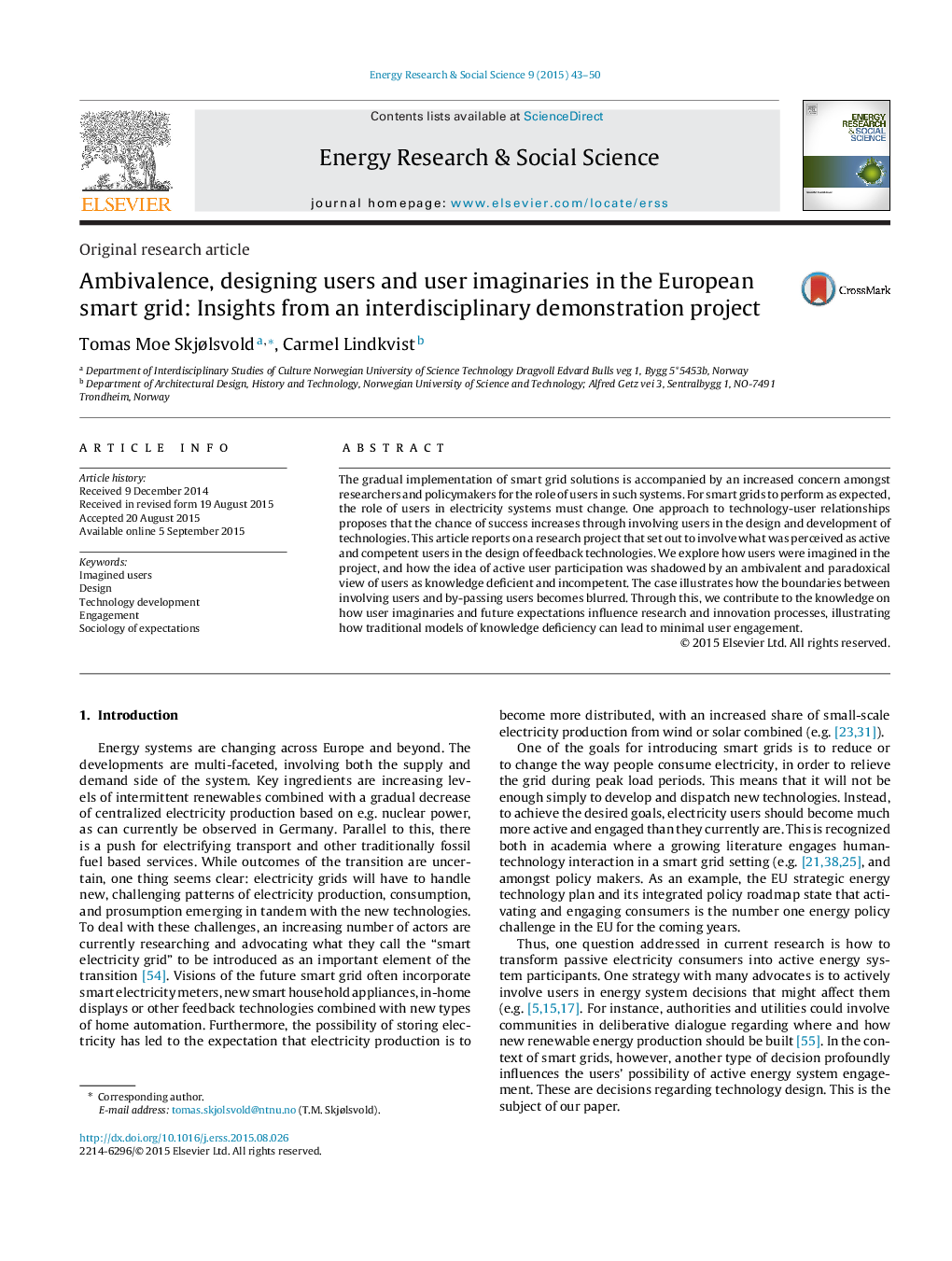| Article ID | Journal | Published Year | Pages | File Type |
|---|---|---|---|---|
| 6558639 | Energy Research & Social Science | 2015 | 8 Pages |
Abstract
The gradual implementation of smart grid solutions is accompanied by an increased concern amongst researchers and policymakers for the role of users in such systems. For smart grids to perform as expected, the role of users in electricity systems must change. One approach to technology-user relationships proposes that the chance of success increases through involving users in the design and development of technologies. This article reports on a research project that set out to involve what was perceived as active and competent users in the design of feedback technologies. We explore how users were imagined in the project, and how the idea of active user participation was shadowed by an ambivalent and paradoxical view of users as knowledge deficient and incompetent. The case illustrates how the boundaries between involving users and by-passing users becomes blurred. Through this, we contribute to the knowledge on how user imaginaries and future expectations influence research and innovation processes, illustrating how traditional models of knowledge deficiency can lead to minimal user engagement.
Related Topics
Physical Sciences and Engineering
Energy
Energy (General)
Authors
Tomas Moe Skjølsvold, Carmel Lindkvist,
